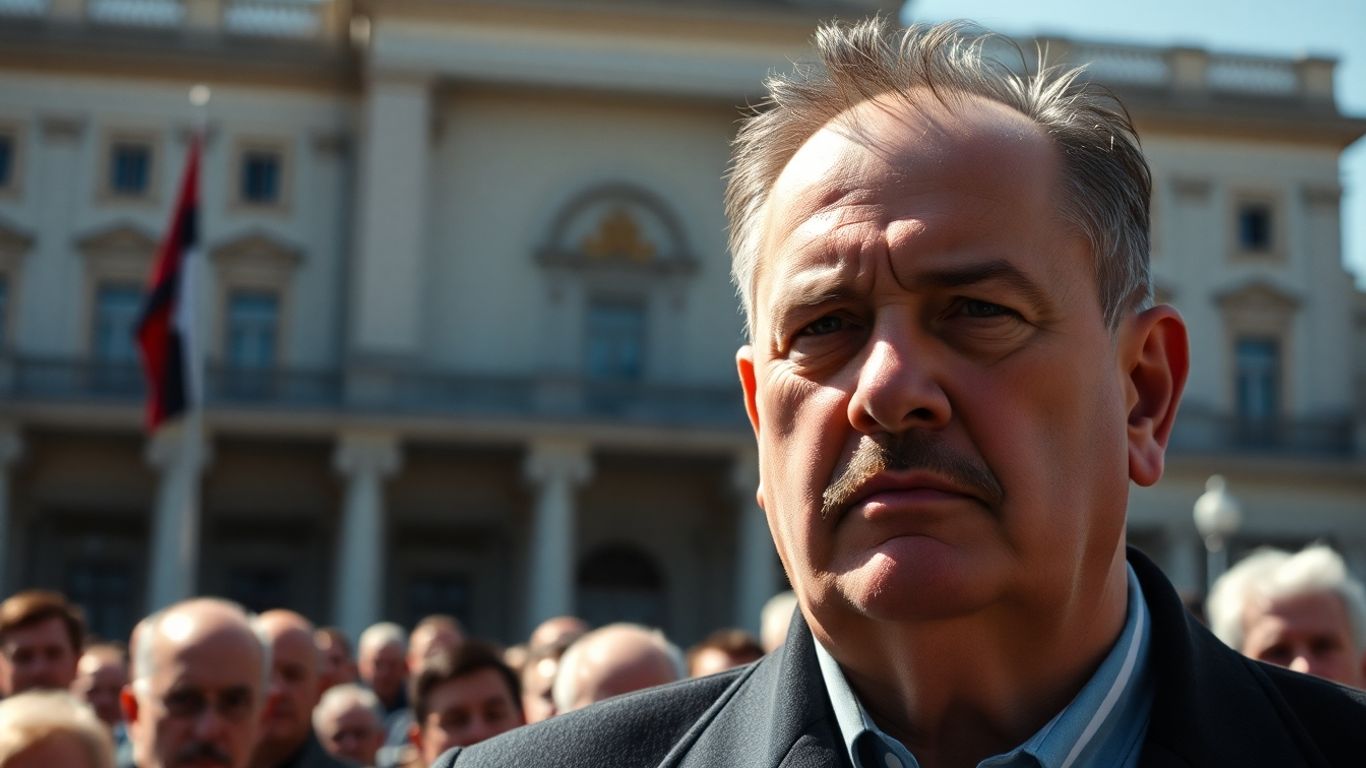Bosnia’s autonomous Serb Republic is facing a deepening political crisis as its president, Milorad Dodik, defies a court order and a six-year ban from politics. Dodik, a prominent separatist, has pushed through a government reshuffle, further escalating tensions in the fragile Balkan nation and challenging the authority of the international envoy overseeing the Dayton Peace Accords.
Key Takeaways
- Milorad Dodik, president of Bosnia’s Serb Republic, has been banned from politics for six years.
- Dodik defied a court order and proceeded with a government reshuffle.
- The opposition deems the reshuffle illegal due to Dodik’s ban.
- The crisis threatens peace in the Balkans and complicates Bosnia’s EU aspirations.
Dodik’s Defiance and Government Reshuffle
The parliament of Bosnia’s Serb Republic has approved a government reshuffle initiated by its president, Milorad Dodik. This move has drawn sharp criticism from the opposition, who argue that the reshuffle is illegal because Dodik himself has been banned from political activities. The vote, which took place late Tuesday, intensifies a separatist drive that poses a significant threat to peace in the Balkans, reminiscent of the conflicts following Yugoslavia’s collapse.
Dodik was stripped of his presidential mandate by Bosnia’s election commission last month. This action followed an appeals court verdict that upheld a previous ruling jailing him for a year and banning him from politics for six years. The conviction stemmed from his defiance of rulings made by the international envoy responsible for overseeing the civilian implementation of the Dayton Accords.
Despite the ban, Dodik has rejected the election commission’s decision and continued to perform his presidential duties. The election commission has called for a new election to be held on November 23 to elect a successor. In response to "challenges ahead," Dodik requested the resignation of Prime Minister Radovan Viskovic and nominated Savo Minic to replace him. The reshuffled government, with only minor changes, was approved by deputies from the ruling coalition, while opposition members boycotted the vote.
Escalating Tensions and International Reaction
The actions of Milorad Dodik have been met with strong reactions. The Bosnian Serb government has declared the court ruling "unconstitutional and politically motivated." Dodik himself has vowed to continue his duties, stating that "surrender is not an option." His stance has been supported by international allies, including Serbian President Aleksandar Vucic and Hungarian Prime Minister Viktor Orban. Conversely, the European Union has emphasized that the court’s verdict is "binding and must be respected," highlighting how Dodik’s pro-Russian and separatist activities have hindered Bosnia’s progress towards EU membership.
The crisis is rooted in the post-war political landscape of Bosnia and Herzegovina, established by the 1995 Dayton Peace Accords. These accords ended a brutal conflict and created two autonomous entities: the Serb Republic and the Bosniak-Croat Federation. Dodik has consistently clashed with the international envoy, Christian Schmidt, and declared his decisions invalid within the Serb Republic. His separatist rhetoric, advocating for the secession of the Serb entity to join Serbia, has fueled fears among Bosniaks and led to sanctions from the United States.
Future Outlook
Experts suggest that legal decisions are ineffective without enforcement, and Dodik appears to feel no pressure for removal, potentially fearing that attempts to forcibly remove him could spark violence. The situation is further complicated by plans for a referendum on Dodik’s status within the Serb Republic, which is likely to be dismissed as unlawful by Bosnian authorities and the international community. The ongoing political instability and Dodik’s defiance could lead to further sanctions from the U.S., the United Kingdom, and the EU, while also potentially impacting regional stability.
Sources
- Serb separatist Dodik defies Bosnian state in government reshuffle, Reuters.
- Separatist Bosnian Serb leader Dodik removed from office | Politics News, Al Jazeera.
- Banned Leader Dodik Drives Cabinet Overhaul In Bosnia, StratNews Global.
- Courthouse News Service | Probably the best news site in the world, Courthouse News Service.
- Appeals court in Bosnia confirms sentence for Bosnian Serb President Milorad Dodik after stoking separatist
tensions, PBS.


![A Nation Mourns: Thousands Bid Farewell to Folk Legend Halid Beslic Thousands mourn folk legend [Halid Beslic] at his funeral.](https://balkaneu.com/wp-content/uploads/2025/10/d4a6f2dfthumbnail-218x150.jpeg)



